NSE SME Eligibility Criteria
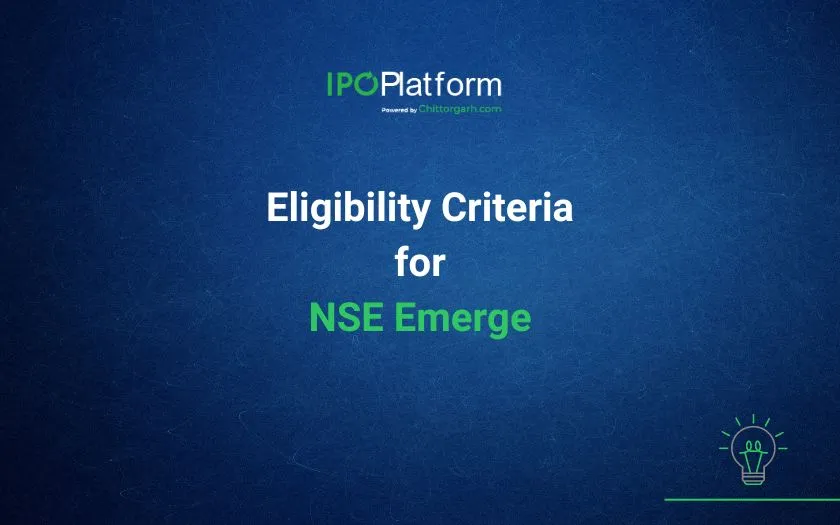
For the purposes of listing, NSE Emerge platform of the Exchange has laid down certain norms and eligibility criteria that needs to be fulfilled. Here are the NSE SME eligibility conditions explained.
Incorporation:
The Issuer should be company incorporated under companies act 1956/2013 in India.
NSE SME Exchange Listing Requirements:
1. Post paid up capital requirement:
The post issue paid up capital of the company (face value) shall not be more than Rs. 25 Crore.
2. Track Record of at least three years:
To qualify for a public listing on NSE SME Exchange, it must have been in operation for at least three years.
-
The applicant company must demonstrate a minimum operational history of three years.
- Promoters or promoting companies, whether incorporated in India or internationally, need to have a minimum of three years of relevant experience in same industry and collectively or individually hold at least 20% of the post-issue share capital.
- Proprietorships or partnership firms that have transitioned into a corporate structure must have a cumulative operational history of three years (this includes their previous business form).
3. SME Net worth and Profitability Criteria:
Profitability Criteria- Companies which want to apply for NSE SME IPO on NSE SME Emerge must have operating profits (earnings before interest, depreciation, and tax) of Rs 1 crore for at least two out of the three full financial years prior to the application. This change in profitability criteria was approved by SEBI in the month of December in the year 2024. This change is applicable for both NSE SME and BSE SME on the SME platform of stock exchanges of India.
Net Worth Criteria- Additionally, companies must have a positive net worth.
4. Positive Free Cash Flow
NSE has introduced an additional FCFE Eligibility Criteria effective September 1, 2024. Under this requirement, SMEs must demonstrate positive Free Cash Flow to Equity (FCFE) for at least two out of the three financial years preceding their IPO application.
FCFE refers to the net cash available after covering all operating expenses, interest payments, taxes, capital expenditures, and debt repayments.
5. Calculation of Free Cash Flow to Equity (FCFE) according to the NSE Emerge Exchange guidelines:
According to the new guidelines issued on August 22, 2024, SMEs aiming to list on NSE Emerge must demonstrate positive Free Cash Flow to Equity (FCFE) for at least two out of the three full financial years. These rules will apply to Draft Red Herring Prospectuses (DRHPs) filed on or after September 1, 2024.
6. Formula
FCFE = Cash Flow From operations – Purchase of Fixed Assets + Net Borrowings – Interest *(1-T) . Calculate your Cash Flow with our FCFE Calculator
- Cash Flow from operations = Cash generated from operating activities
- Purchase of Fixed Assets = purchase of property, plant, and equipment (PPE) including capital work in progress – sale proceeds of PPE including capital work in progress + capital advances
- Net borrowings = Proceeds of Long-term borrowing – Repayment of long-term borrowings + Proceeds of short-term borrowings – Repayment of short-term borrowings
- Interest (1-T) = Interest expense in P/L on short-term and long-term borrowings * (1-tax rate)
7. Other norms applicable for SME IPO as introduced by SEBI for regulating SME IPOs in India
-
OFS portion restricted to 20% of Issue Size
-
Selling Shareholders cannot sell more than 50% of their shareholding.
-
Minimum promoter contribution (MPC) is locked for 3 years. Excess of MPC: a) 50% released after one year; b) remaining 50% after 2 years
-
Loan Repayment- SME IPO Issues can’t use funds to repay promoter loans
-
General Corporate Purposes- GCP capped at 15% or Rs 10 crores, whichever is lower.
-
Related Party Transactions considered material if amounting to 10% of turnover or Rs 50 crores whichever is lowe
8. Other Listing Requirements:
- IPO applicant has not been referred to the Board for Industrial and Financial Reconstruction (BIFR) or no proceedings are undergoing under the Insolvency and Bankruptcy Code.
- The entity has not received a winding-up petition from the Court or NCLT.
- The Issuer has not been involved in any regulatory misconduct and no disciplinary action has been taken by a regulatory authority in the past 3 years.
- IPO Issuer company must ensure that none of the IPO merchant banker or lead manager’s draft offer documents filled with exchange has been rejected in the last 6 months before the date of IPO application.
- The application of the applicant company should not have been rejected by the Exchange in last 6 complete months.
IPO Advisors play an important role in successful launch of an IPO. Their advisory role from IPO readiness, selecting the best merchant banker in India for SME IPO, various due diligence activities and IPO valuation guides the company throughout the IPO Issue and listing process. IPO platform in India provides information on upcoming IPOs on NSE Emerge and BSE SME and list of merchant bankers and anchor investors. Role of IPO advisor is important in the success of the listings.
Conclusion
In summary, listing on the NSE SME Exchange requires careful adherence to financial, operational, and regulatory standards. With requirements like a minimum track record, positive net worth, and the newly introduced FCFE criteria, SMEs must demonstrate strong financial health and corporate governance. By meeting these conditions, companies can successfully access public markets, raise capital, and achieve long-term growth. SEBI has introduced some new norms and modified the profitability criteria to make the SME IPO market more regulated, transparent and to ensure long term sustainability. These norms would bring growth oriented companies to raise funds from public through Initial Public Offerings.


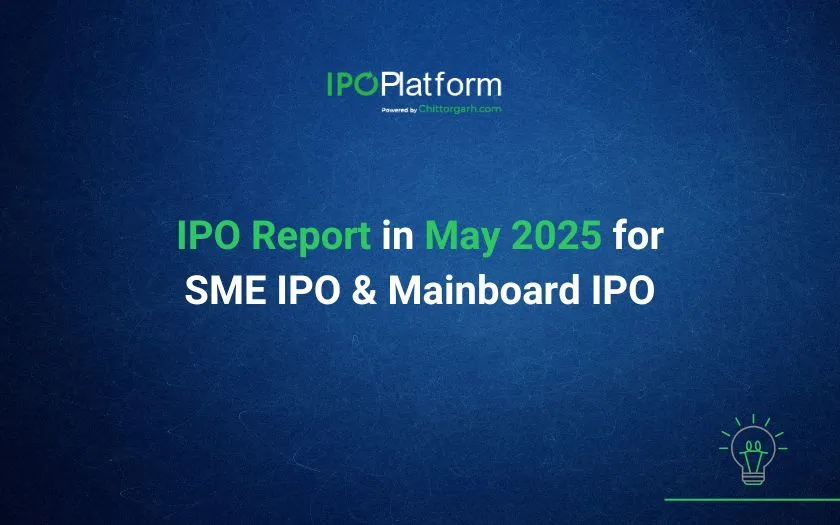
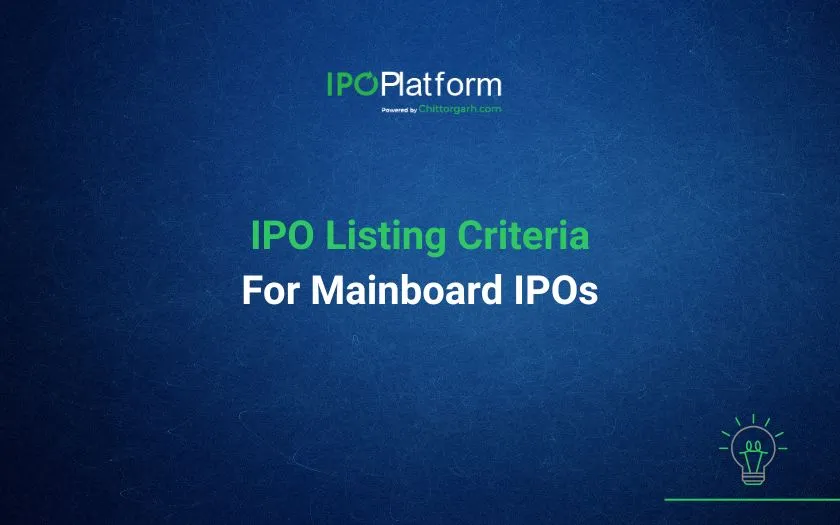
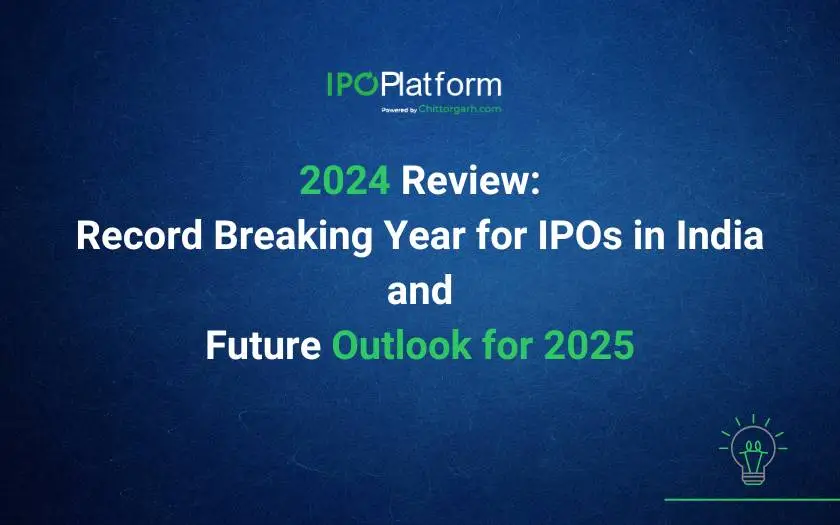
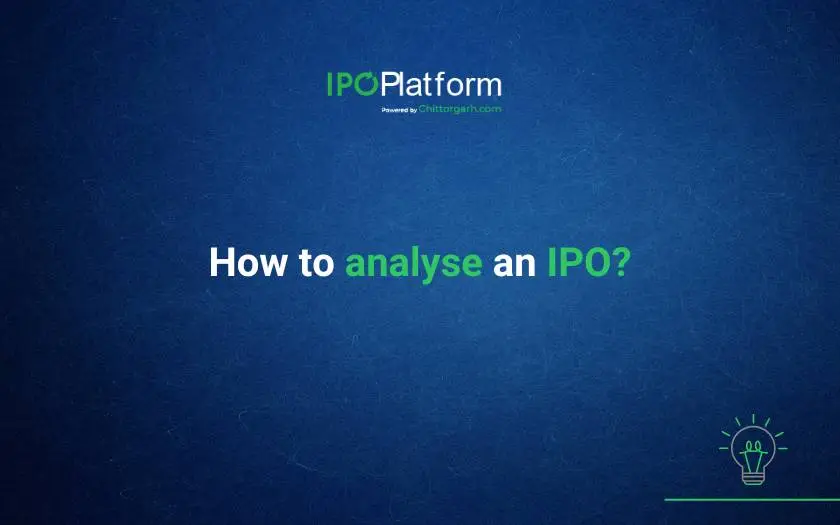
0 Comments